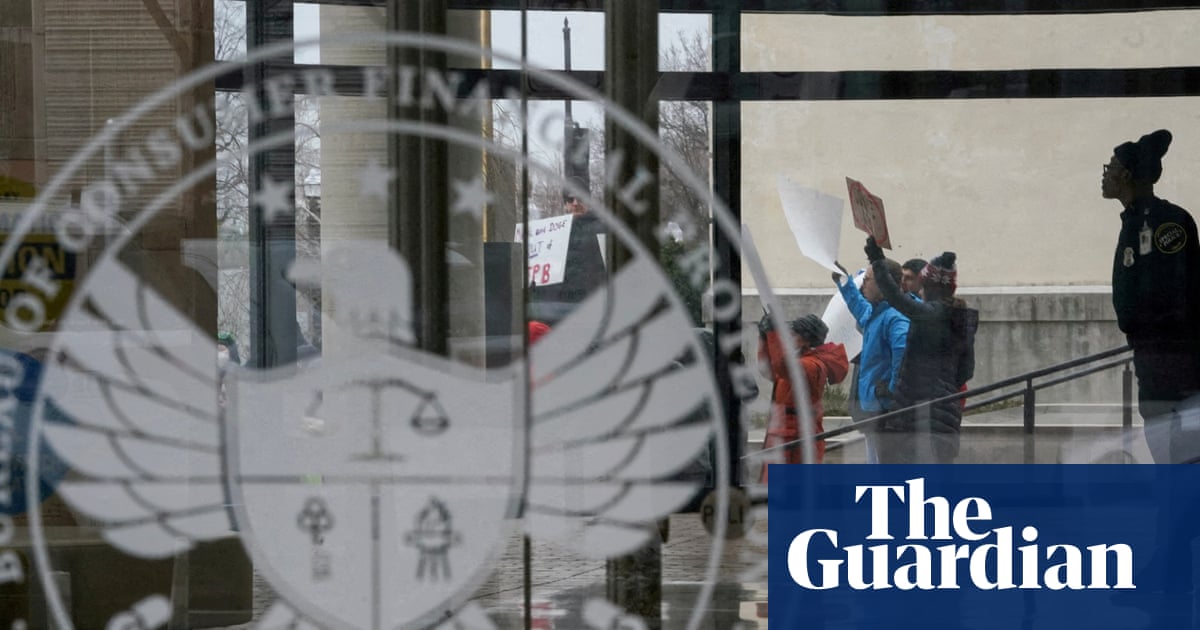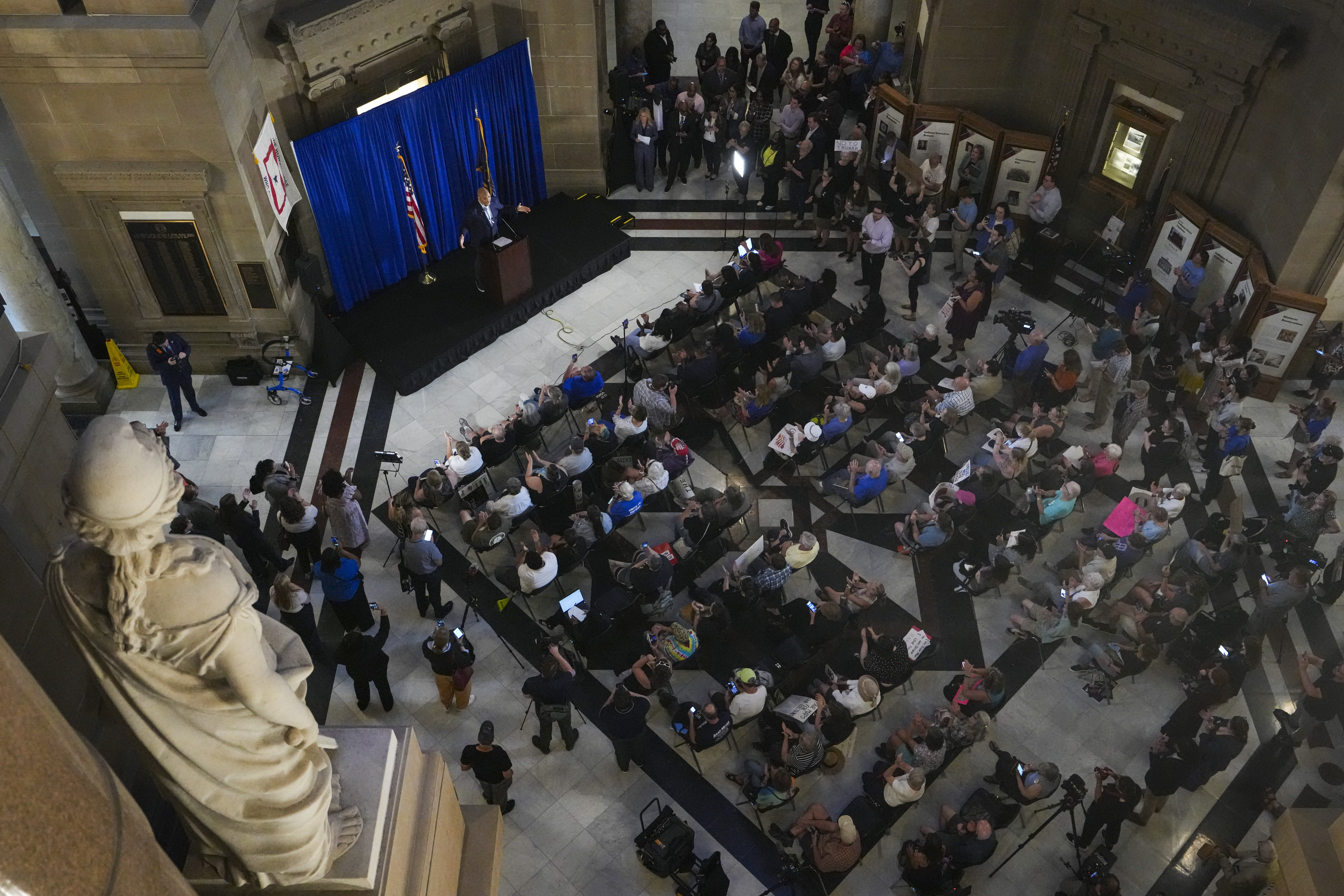In late April, the Department of Justice announced that it was ending a decades-long consent decree in Plaquemines parish, Louisiana, in a school district that has been under a desegregation order since the Johnson administration in the 1960s.
The Plaquemines parish desegregation order, one of more than 130 such orders nationwide, was in place to ensure that the school district, which initially refused to integrate, followed the law. Many consent decrees of the era are still in existence because school districts are not in compliance with the law.
Some experts, including former justice department employees, say the change in direction for the department could be worrying.
These orders “provide students with really important protections against discrimination”, said Shaheena Simons, who was the chief of the educational opportunities section of the civil rights division at the justice department for nearly a decade. “They require school districts to continue to actively work to eliminate all the remaining vestiges of the state-mandated segregation system. That means that students have protections in terms of what schools they’re assigned to, in terms of the facilities and equipment in the schools that they attend. They have protection from discrimination in terms of barriers to accessing advanced programs, gifted programs. And it means that a court is there to protect them and to enforce their rights when they’re violated and to ensure that school districts are continuing to actively desegregate.”
The justice department ended the Plaquemines parish desegregation order in an unusual process, one that some fear will be replicated elsewhere. The case was dismissed through a “joint stipulated dismissal”. Previously, courts have followed a specific process for ending similar cases, one in which school districts prove that they are complying with the court orders. That did not happen this time. Instead, the Louisiana state attorney general’s office worked with the justice department in reaching the dismissal.
“I’m not aware of anyone, any case, that has [ended] that way before,” said Deuel Ross, the deputy director of litigation of the Legal Defense Fund (LDF); the LDF was not specifically involved with the Plaquemines parish case. “The government as a plaintiff who represents the American people, the people of that parish, has an obligation to make sure that the district has done everything that it’s supposed to have done to comply with the federal court order in the case before it gets released, and the court itself has its own independent obligation to confirm that there’s no vestiges of discrimination left in the school district that are traceable to either present or past discrimination.”
Despite the district not proving that it is compliant with the order, the justice department has celebrated the end of the consent decree.
“No longer will the Plaquemines Parish School Board have to devote precious local resources over an integration issue that ended two generations ago,” Harmeet K Dhillon, assistant attorney general of the justice department’s civil rights division, said in a statement announcing the decision. “This is a prime example of neglect by past administrations, and we’re now getting America refocused on our bright future.”
But focusing on the age of the case implies that it was obsolete, according to Simons, who is now the senior adviser of programs and strategist at the Lawyers’ Committee for Civil Rights Under Law. “The administration is trying to paint these cases as ancient history and no longer relevant.”
In 1966, the Johnson administration sued school districts across the country, particularly in the south, that refused to comply with desegregation demands. At the time, Plaquemines parish was led by Leander Perez, a staunch segregationist and white supremacist.
Perez had played a large role in trying to keep nearby New Orleans from desegregating, and once that effort failed, he invited 1,000 white students from the Ninth Ward to enroll in Plaquemines parish schools. By 1960, nearly 600 had accepted the offer. Perez was excommunicated by Archbishop Joseph Francis Rummel for ignoring his warning to stop trying to prevent schools run by the archdiocese of New Orleans from integrating.
Perez attempted to close the public schools in Plaquemines parish, and instead open all-white private academies, or, segregation academies, which became a feature of the post-integration south. An estimated 300 segregation academies, which, as private schools, are not governed by the same rules and regulations as public schools, are still in operation and majority white.
Students and teachers working in school districts today might be decades removed from the people who led the push for desegregation in their districts, but they still benefit from the protections that were long ago put in place. Without court oversight, school districts that were already begrudgingly complying might have no incentive to continue to do so.
According to the Century Foundation, as of 2020, 185 districts and charters consider race and/or socioeconomic status in their student assignment or admissions policies, while 722 districts and charters are subject to a legal desegregation order or voluntary agreement. The justice department currently has about 135 desegregation cases on its docket, the majority of which are in Louisiana, Mississippi, Alabama and Georgia.
after newsletter promotion
“Separate but equal doesn’t work,” said Johnathan Smith, former deputy assistant attorney general in the civil rights division at the justice department. “The reality is that students of color do better when they are in integrated classrooms … We know that the amount of resources that are devoted to schools are greater when there are a higher number of white students. So to have students attend majority-minority school districts means that they’re going to be shut out, whether that’s from AP classes, whether that’s from extracurricular activities. All the activities that make it possible for students to fully achieve occur when you have more integrated classrooms.”
“Public education isn’t just about education for the sake of education,” he added. “It’s about preparing people to be citizens of our democracy and to be fully engaged in our democratic institutions. When you have students that are being shut out from quality public education, the impact is not just on those communities. It’s on our democracy writ large.”
Smith, the current chief of staff and general counsel for the National Center for Youth Law, said that the decision “signals utter contempt for communities of color by the administration, and a lack of awareness of the history of segregation that has plagued our nation’s schools”.
“Even though we are 71 years after the Brown v Board [of Education] decision, schools of this country remain more segregated today than they were back in 1954,” he said. “The fact that the administration is kind of wholeheartedly ending these types of consent decrees is troubling, particularly when they’re not doing the research and investigation to determine whether or not these decrees really should be ended at this point.”
Smith said that the decision in the Plaquemines parish case may be a “slippery slope” in which other school districts begin reaching out to the Trump administration.
“The impact they can have across the country and particularly across the south is pretty huge,” he said. “I worry that we’re going to see more and more of these decrees falling and more and more of these districts remaining segregated without any real opportunity to address that.”

 German (DE)
German (DE)  English (US)
English (US)  Spanish (ES)
Spanish (ES)  French (FR)
French (FR)  Hindi (IN)
Hindi (IN)  Italian (IT)
Italian (IT)  Russian (RU)
Russian (RU)  3 weeks ago
3 weeks ago
























Comments